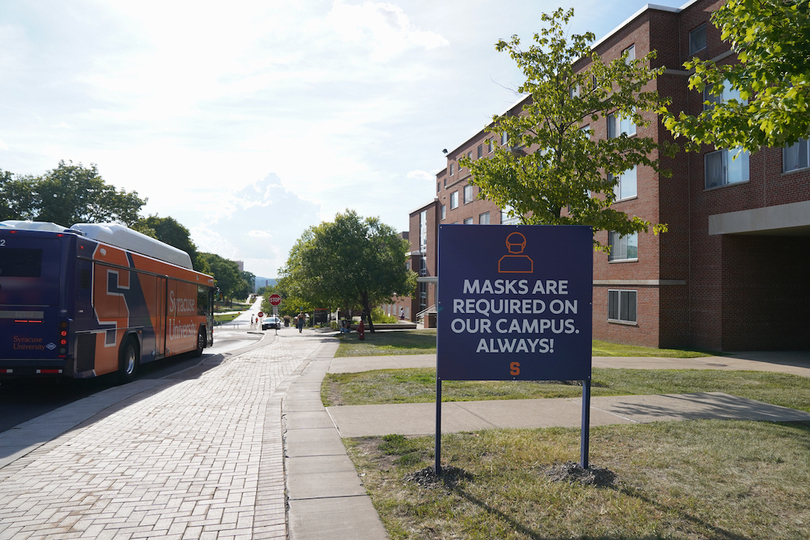Graduate students are essential, too

Emily Steinberger | Photo Editor
I was a free spirit in college, so I can’t judge undergrads for wanting to party. If a pandemic had interrupted my spring semester and forced me back into my parent’s house, then my triumphant return would have shamed Bacchus — and I went to a small Baptist college. Is it any surprise, then, that neither the honor system nor the Stay Safe Pledge has kept the nation’s No. 3 party school from partying?
Vice Chancellor Mike Haynie’s recent email, appropriately stern, warns that the recent large-scale gathering of students on the Quad “may have done damage enough to shut down campus.” He isn’t wrong. But before first-year students decided to party in the middle of campus, returning students in groups of 30 or more have been playing beer pong on Euclid Avenue for weeks.
Syracuse University will soon switch to online instruction for the remainder of the fall. It’s inevitable. However, while New York state continues to grant autonomy to individual schools regarding on-campus instruction, SU administration should begin to differentiate between undergraduate college students and graduate students.
Graduate students do not pose the same health risks as undergrads, are as likely as faculty and staff to follow safety guidelines and have a penchant for late-night studying rather than beer pong.
We’re about to turn an inevitable corner. When we do, I’m not suggesting that all graduate classes continue on campus, or that all graduate students have unrestricted access. Reducing community spread requires reducing the number of individuals on campus, which we all understand.
What I am suggesting is that the administration provide pre-planned alternatives for a small, select group of graduate students, namely those whose educations are inseparable from bodily movement or performance, and those whose educations are inseparable from studios, labs and equipment. This would pertain to programs like the Master of Fine Arts in art photography or performance, the Master of Science in television, radio and film and the Doctor of Audiology or doctorate in audiology, etc.
Circumstances will soon force the university to make difficult decisions. SU has not only essential employees, but also essential students. Please, don’t throw the baby out with the bathwater.
Sam Castleberry
Ph.D. Student, Social Sciences




